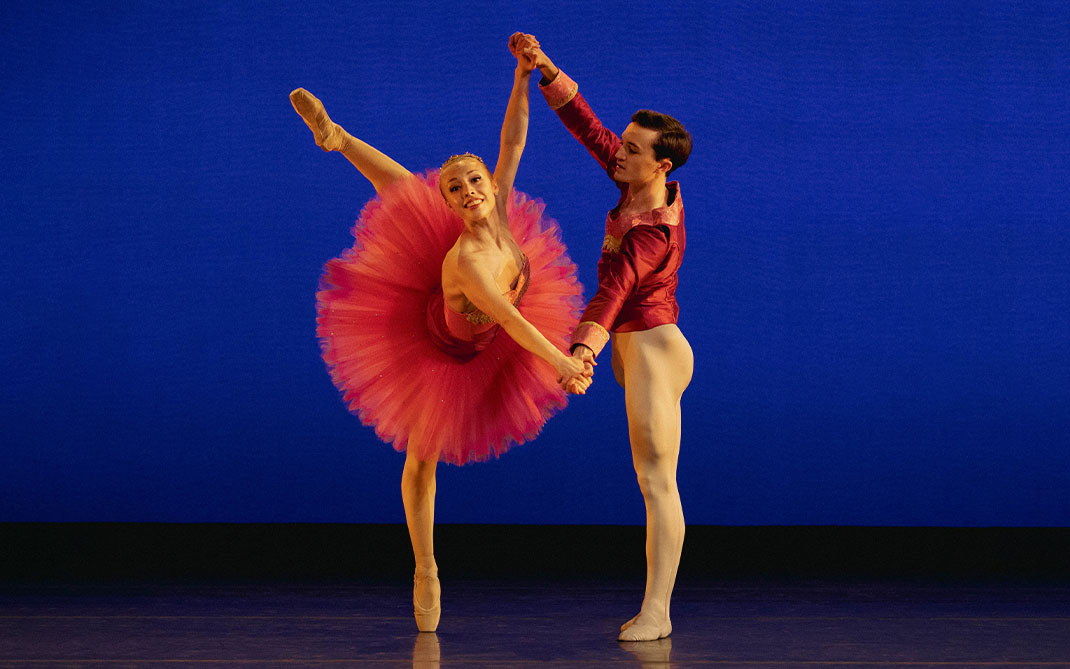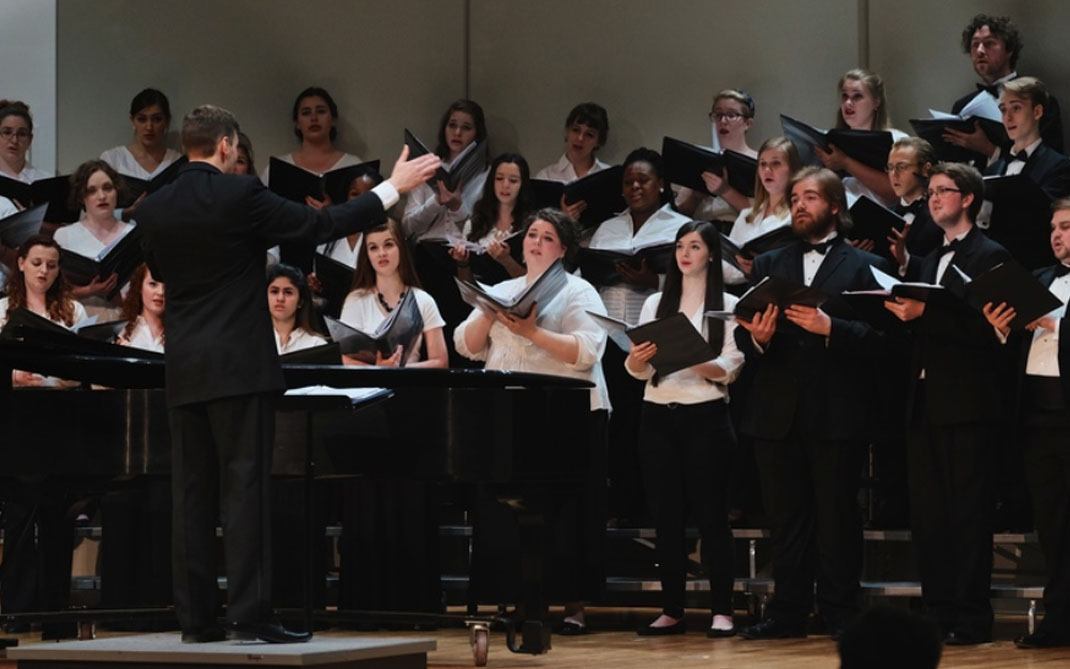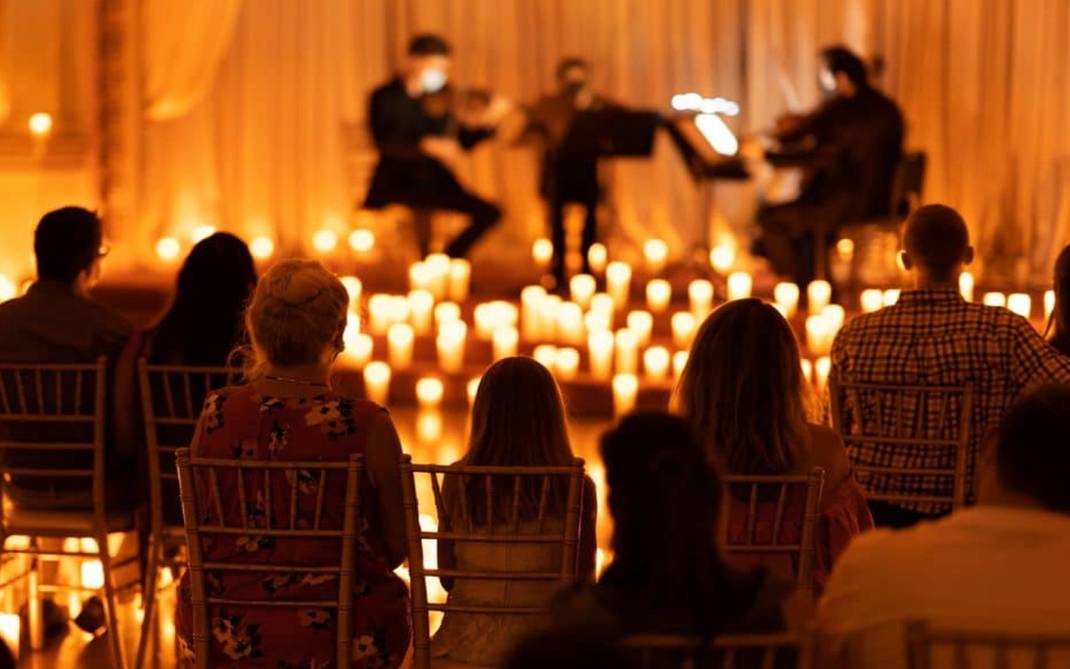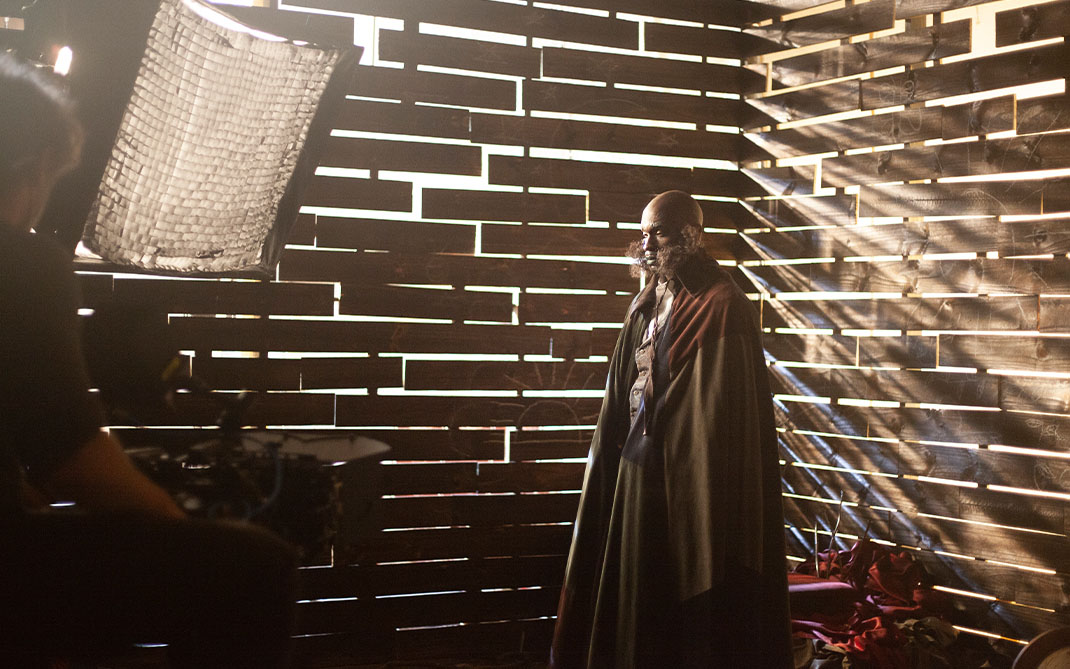2020 Fall EDIB Progress Report
UNCSA is committed to creating a welcoming environment that enables all students, faculty and staff to thrive. This report shares progress from the fall 2020 semester on initiatives related to our community’s commitment to improving areas of equity, diversity and inclusion. The efforts listed below build upon the goals established in the campus EDI Framework.
EDI ADVISORY COMMITTEE ACTIONS
The EDI Advisory Executive Committee and Subcommittees began meeting regularly. Subcommittees reviewed existing programs, practices, policies
and recommendations from the UNC Racial Equity Task Force. They completed focus groups,
listening sessions and informational interviews with UNCSA community members. A comprehensive
benchmarking study of IPEDS (Integrated Postsecondary Education Data System) peer
institutions was conducted to gather promising practices that can be easily deployed
at UNCSA.
GENDER-NEUTRAL SIGNAGE FOR RESTROOMS
The Student Government Association, in collaboration with Student Affairs and facilities,
led an effort to update restroom signage to include gender-neutral designations. University
facilities identified 29 single-fixture restrooms on campus and updated them with
gender-neutral signage. This spreadsheet lists the building, location and number of gender-neutral signs installed. It is important
to note that some of single-fixture gender-neutral restrooms are not ADA compliant.
Those that are ADA compliant have the international symbol of access (wheelchair symbol)
added to the gender-neutral signage.
UNCONSCIOUS BIAS TRAINING FOR HIRING
UNCSA launched hiring searches for the deans of Dance, Filmmaking and Music. The provost’s
office brought professional consultants to train the search committees to understand
and minimize unconscious bias in hiring. EDI-specific questions were added to the
application template for all prospective employees.
EQUITY IN MENTAL HEALTH INITIATIVE
Student Affairs created a “male-identifying students of color” group to provide emotional
health support as part of the Equity in Mental Health initiative through JED Campus
(a national nonprofit dedicated to preventing suicide, reducing substance abuse and
improving well-being among teenagers and young adults) and the Steve Fund (a national
organization focused on supporting the mental health and emotional well-being of young
people of color). This initiative has been well-received and is helping to build relationships
across the five arts schools. Based on this success a “female-identifying students
of color” group was planned for the spring semester.
STRATEGIC COMMUNICATIONS TRAINING
UNCSA Strategic Communications completed a facilitated training to learn about LGBTQ+
identities, gender and sexuality, and to examine prejudice, assumptions, and privilege
and how that is reflected in the language we use. The goal was to ensure a current
and sensitive vocabulary around LGBTQ+ issues for institutional communications.
INTERNATIONAL STUDENT WEEK
The first UNCSA International Student Week was held Nov. 16-20, 2020. This effort
was designed to address the unique needs of our international student community. Programming
included faculty and student workshops, student spotlights, a highlight of international
films, and a virtual discussion about the international student experience.
POLICE AND PUBLIC SAFETY
The UNCSA Police and Public Safety Department engaged with Student Affairs and the
Student Government Association to develop a report card for compliance with the 21st
Century Policing Task Force recommendations established by President Obama. Progress
on compliance with those recommendations is being made in addition to progress on
becoming accredited with the Commission on Accreditation for Law Enforcement Agencies,
a two-to-three-year process that began in the fall of 2019. Please visit the UNCSA Police and Public Safety website to access updated police procedures, and file online complaints (including anonymous)
or commendations for UNCSA police employees.
SCHOOL-SPECIFIC EDI INITIATIVES
The School of Dance expanded its curriculum to celebrate and incorporate the work of a wide array of artists
of color and non-Western perspectives. Diverse guest faculty, choreographers and lecturers
engaged with students. Faculty, staff and students worked with diversity strategist Theresa Ruth Howard to develop deeper perspectives on growth in EDI. Conversations began to move the Preparatory
Dance and year-round programs toward meaningful inroads into local underserved communities.
Read more in the School of Dance update.
The School of Design & Production partnered with the School of Drama to update their approach to play selection to include more authors from historically marginalized communities. A D&P-focused climate survey was concluded and Dean Kelley hosted a town hall discussion around equity, diversity and inclusion with current students. D&P leadership and faculty are committed to continuing the Weekend of Women+, which addresses the unique challenges facing women+ of varied identities in D&P professions.
School of Drama students and faculty jointly developed a philosophical statement about the school's commitment to EDI. An extension of that effort involved creating a mechanism for students to have a voice on issues of representation in the casting process. A panel entitled “BIPOC Drama Alumni Active in Musical Theater” was hosted for students to hear about the specific challenges our alumni face navigating this part of the industry, including lack of representation of BIPOC professionals in backstage and management roles.
The School of Filmmaking created a faculty-led EDI committee, chaired by the head of the screenwriting M.F.A. program and documentary filmmaker Joy Goodwin, to discuss film-specific EDI issues and actions. The committee produced a recruitment video featuring a diverse group of alumni that were the first in their families to go to film school. A History of Black Cinema course was developed for the spring semester that for the first time engaged UNCSA Film students in a survey of African American film culture.
The School of Music created an action plan to address historical disregard for the contributions of nonwhite, female-identifying, and LGBTQ+ musicians and composers. The plan includes curricular changes and adjustments to instructional output that apply to all students, as well as programmatic additions and guest artist engagements. Read more in the School of Music update.
The Division of Liberal Arts added the following course options to the undergraduate curriculum: Diverse Detectives (fiction featuring investigators whose social positions, e.g., in terms of race, gender, sexuality, nationality, and/or class, have led to underrepresentation in the genre), Gender and Sexuality Studies (considering significance and meaning of gender and sexuality at key periods, and exploring the development of U.S. feminism, feminist theory, and LGBTQ studies), Noir Fiction: Female Noir (engaging works by female-identifying authors), From City of Gold to City of God (introducing histories of Latin America from the 15th through the 21st century). Two DLA faculty groups worked on core courses: First-Year Seminar and Self, Society, and Cosmos incorporating more diverse content and centering responsive pedagogy, a method that considers individual experiences and expertise as central to learning.
The High School Academic Program developed a mission statement and began to build a new graduation requirement: the citizen-artist capstone. Hiring practices were revised to support the recruitment of a more diverse faculty. H.S. Academics partnered with Admissions on recruitment visits to schools in underserved communities and created programs specifically focused on retaining historically marginalized students. H.S. Academics partnered with the arts schools to launch the Social Justice Guest Speaker Series and welcomed visual artist Endia Beal as its first speaker. Read more in the High School Academics update.
October 25, 2023





